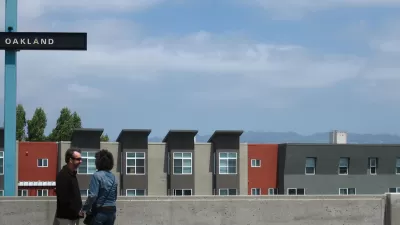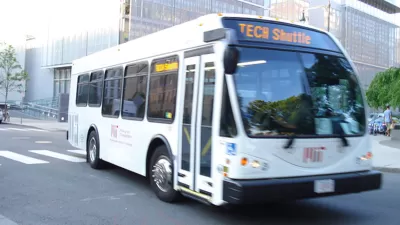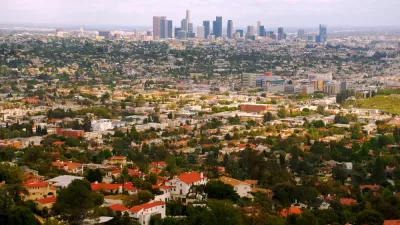Hundreds of thousands of Black Californians are moving away from urban areas, opting for the promise of abundance and opportunity offered by suburban communities, a trend referred to as "California's Black exodus."

Since the late 1980s, 275,000 Black Californians have moved away from expensive coastal cities like San Fransisco, Oakland, Los Angeles, and Compton, in a shift that Lauren Hepler describes as "California's Black exodus." In large numbers, ex-city dwellers have sought the opportunity and security of suburban communities in areas like California's Central Valley, the Inland Empire, and the San Joaquin-Sacramento Delta. Hepler points out that those who move to new cities face a different set of challenges and opportunities than those they left behind. "While a version of this geographic scramble is playing out for working and middle-class people of all races, the distinct obstacles that Black residents encounter in new communities raise the question: How far do you have to go today to find opportunity — and are some things ever really possible to leave behind?" writes Hepler.
As larger numbers of Black Californians make move from city to suburb, new forms of discrimination have emerged. Predatory lending practices and job discrimination are still unfortunate aspects of everyday life in the new hometowns of Black Californians. According to associate professor of geography and urban planning at Arizona State University Deirdre Pfeiffer, in some communities, the trend of upward mobility, opportunity, and security of experience during the "Black flight" in the '80s and '90s has not continued. Now, at the intersection of pandemic anxiety, political discord, and a profound wave of protests reckoning with systemic racism in the United States, "at issue is whether these overlapping crises will accelerate California’s Black exodus or force a reckoning both inside and outside major cities," says Hepler.
FULL STORY: The hidden toll of California’s Black exodus

Maui's Vacation Rental Debate Turns Ugly
Verbal attacks, misinformation campaigns and fistfights plague a high-stakes debate to convert thousands of vacation rentals into long-term housing.

Planetizen Federal Action Tracker
A weekly monitor of how Trump’s orders and actions are impacting planners and planning in America.

In Urban Planning, AI Prompting Could be the New Design Thinking
Creativity has long been key to great urban design. What if we see AI as our new creative partner?

King County Supportive Housing Program Offers Hope for Unhoused Residents
The county is taking a ‘Housing First’ approach that prioritizes getting people into housing, then offering wraparound supportive services.

Researchers Use AI to Get Clearer Picture of US Housing
Analysts are using artificial intelligence to supercharge their research by allowing them to comb through data faster. Though these AI tools can be error prone, they save time and housing researchers are optimistic about the future.

Making Shared Micromobility More Inclusive
Cities and shared mobility system operators can do more to include people with disabilities in planning and operations, per a new report.
Urban Design for Planners 1: Software Tools
This six-course series explores essential urban design concepts using open source software and equips planners with the tools they need to participate fully in the urban design process.
Planning for Universal Design
Learn the tools for implementing Universal Design in planning regulations.
planning NEXT
Appalachian Highlands Housing Partners
Mpact (founded as Rail~Volution)
City of Camden Redevelopment Agency
City of Astoria
City of Portland
City of Laramie





























